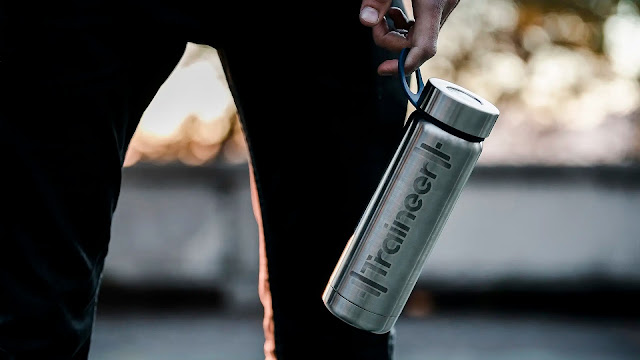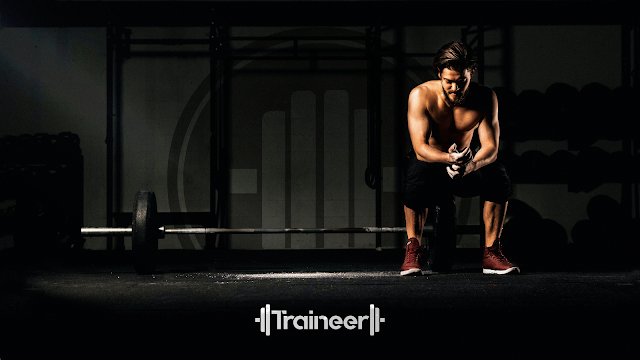Why hydration is important for sports performance?
You may be surprised to learn that when you exercise you can lose up to 500ml of fluid in just half an hour. The main causes of this fluid loss are due to sweat and the air we exhale during training.
If fluid levels are not replenished correctly, the body quickly begins to dehydrate, which can affect your health and performance. It's key to make sure you drink the right amount of fluids before, during and after exercise, as this will help you maintain your performance at its peak.
That's why in this article we're going to explain in detail the importance of hydration in relation to sport performance and health.
How to hydrate before starting physical exercise?
It is of key importance to make sure you are well hydrated before exercising, especially if you are in hot or high humidity environments. If you are dehydrated before you even start the workout in question, your internal body temperature will rise faster than normal and therefore your heart will have to work harder than usual. This can have a negative impact on your performance and can even lead to serious health problems such as possible heat stroke or heat stroke.
If, on the other hand, you have replenished your fluid levels correctly during the day, and you have not exercised for 8-12 hours, then you should be sufficiently hydrated to exercise at any time of the day.
The easiest way to check if you are well hydrated is to observe the colour of your urine. Your urine should be pale in colour; the darker it is, the more dehydrated you are. Some factors can change the colour of your urine, such as vitamin supplements, so this test may not be reliable. If your urine is dark or if you think you are dehydrated, you should drink fluids continuously for at least four hours before you start exercising. If you have not yet urinated or if your urine is still dark, then drink progressively more fluids for about two hours before doing any training. This will allow enough time for your body to absorb the fluids and reach optimal hydration levels. You may need to try different amounts and time periods until you get your hydration levels under control.
How to hydrate correctly during training?
As little as two per cent dehydration can have a negative impact on your performance, so it is important to replenish your fluid levels, as that simple two per cent fluid loss can decrease performance by 20-30 per cent.
It is best to drink at first and then at regular intervals as you exercise. How much you need to drink will depend on how much you sweat, how long you exercise and, of course, whether you actually have the opportunity to drink while you exercise. If you plan to exercise for more than an hour, sports drinks containing carbohydrates or even just an extract-based soft drink may work, as the sugar provides the extra energy and the salts will help keep you hydrated. You may want to try consuming a sports drink containing 60-80g of carbohydrate per hour. This will help you avoid injury and keep your training in peak condition.
If you exercise for less than an hour, the best drink to stay hydrated is probably fresh water.
It is important not to wait until you feel thirsty to drink: by then it will be too late and, you will already be dehydrated, so your performance will have long since diminished.
What about post-workout hydration?
Once you have finished your physical exercise, you will no doubt be ready to drink something. This will refresh you, but it is important to replenish lost fluids to get back to your normal level because this will help your muscles recover. You can calculate how much fluid you lose in a typical exercise session and how much you will need to drink by weighing yourself before and after exercise and comparing the weights. For every kilogram of body weight you lose, you need to drink about 1.5 litres of fluid. The sooner you start replenishing fluid, the sooner you will recover from exercise.
Sports drinks or just water with a pinch of salt will help to restore your fluid levels. Try to eat something salty: it may sound strange, but this will naturally make you feel thirstier so you will drink more and therefore rehydrate faster. Don't drink alcohol or caffeinated drinks immediately after exercise because they are diuretics (they remove water from your body by increasing the amount of urine your kidneys produce).
Excessive drinking:
While you may feel so thirsty during and after exercise that you think you could drink litres of water, it's important to remember that drinking too much can be harmful and can cause a condition called hyponatraemia. This is when too much water dilutes the salts in your body and your cells become inflamed, which can lead to a range of health problems. Symptoms of hyponatraemia include confusion, disorientation, headache, discomfort, vomiting, lack of coordination and muscle cramps. In the worst cases, severe hyponatraemia can lead to coma, heart failure and even death.
Sports drinks.
The variety of different sports drinks can be overwhelming and it can be difficult to some extent to choose between the different options or whether they actually offer any real benefit. These drinks not only replenish lost fluid, but also contain carbohydrates and electrolytes (sodium, potassium, magnesium and chloride). These provide energy for training, help keep us hydrated and simply make the drink taste better. There are three main types of sports drinks: hypotonic, isotonic and hypertonic.
What is the difference between hypotonic, isotonic and hypertonic drinks?
Hypotonic drinks** are low in carbohydrate (less than 4g per 100ml) and are designed to replenish fluids lost during sustained exercise. Isotonic drinks** contain a small amount of carbohydrate (4-8g per 100ml) and as well as replenishing fluids they also help to replenish your body's carbohydrate stores. This is important if you exercise for more than an hour. Hypertonic** fluids have a high concentration of carbohydrates (more than 8g per 100ml). This means that your body absorbs them more slowly than water alone, but will actually improve energy recharge.
With each workout and continuous physical effort, the human body loses a large amount of fluids, from 500ml to 3 or 4 litres per workout. In order to maintain optimal sports performance throughout our training, from Traineer, we strongly recommend consuming fluids before, during and after exercise. That is why in this article we have told you all the key points you need to know about rehydration, which we hope you will use in all your future training sessions to get the most out of them. Sincerely, the Traineer team.




Comentarios
Publicar un comentario